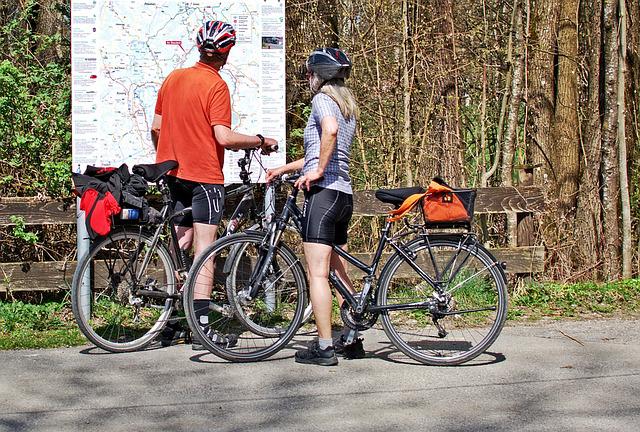Start eating right. Life-saving tips and “working” options on how to help new eating habits gain strength. 15 tips — for all cases of a power change. What should I do if nutrition changes are difficult?
#1. Praise yourself for your behavior, not for the results
The results are somewhat unpredictable and fickle. In addition, we have limited control over them. But the behavior is controlled, and consistent behavior often leads to long-term, sustainable results.
When we praise behavior (not results), we focus on actions and moving forward. When you get new wonderful results, ask yourself: what actions helped me get here? And thank yourself for it.
#2. Change the system, not the symptoms
Practice shows that motivation and willpower are finite. If we rely only on them, the changes will be unstable. But if we create a support system for new actions or fit new actions into the current system, the changes become sustainable.
#3. Separate yurself from the problem
“Io am making attempts to adjust the diet, some of them are successful, some are not, now I am looking for working ways.” Actually, the problem is what happens, what doesn’t work out, not who you are. Remember this.

#4. Turn knowledge into action
Look for opportunities to take the first step, the next step, to do a little more each time, and not to accumulate knowledge. Just knowledge will not bring you results, will not change your life. Actions are important. Most likely, you already have enough knowledge. It’s time to turn them into actions.
#5. Write stories of opportunities, experiences, and discoveries from stories of failures
Tell or write your story of failure that bothers and stops you. For example, a bad diet experience, weight gain, and eating on emotions. And now find the strengths in it that have brought you a lesson, experience, made you stronger, and expanded your vision.
If you fail and go forward, you always become stronger, you see and can do more than before. Find and uncover a place of strength in this situation, concentrate on this, not on the episode that led to failure.
#6. Simplify
Concentrate on simple actions, in short stages. Think only about what you can do now. Ask yourself: on a scale of 1 to 10, how much do I feel I can handle this? If the answer is less than 9, reduce the action and proceed.
#7. Rely on the strength inside
When you feel insecure in the face of change or stress, ask yourself 2 questions to focus on the main thing and rely on the strength inside: What should I do today? How can I do this? This will help to come to calm, purposeful actions.

#8. Look for control points. What should I do if nutrition changes are difficult?
On the path of change, we may be upset by the lack of control. When you feel helpless, as if nothing is under your control or the previous behavior scenarios no longer work, ask yourself: “Right now, what is really under my control and what is not?” With this one question, we can calm down and find solutions that we have not seen before.
#9. Sometimes we all just need support, and that’s okay
Sometimes each of us needs a person who can just be there, listen and support. Just know that this is normal. This means that you are moving forward, now you are in a difficult (new) place and you are doing well.
If you have the opportunity, find your support space and relax in it for a short time. To go forward again and come to a place where you will feel better (it is definitely there ahead).
#10. Thank yourself
One of the most important actions you can take during difficult moments is to thank yourself. When it’s easy to move forward, everything is fine and simple. But when it’s difficult, support and thank yourself, especially when it seems to you that there is nothing to thank yourself for.
#11. Remember that any behavior is the best choice from the current ones, even if it looks destructive
Remember and use it. We always make the best possible choice. Therefore, the most effective thing we can do for new results is to expand the choice of options. Consider new scenarios to choose the really best one.

#12. Remember about competing desires. What should I do if nutrition changes are difficult?
Desires (motivations) for long-term and short-term periods may go against each other. This manifests itself, for example, as follows: you want to stick to a rational diet, but over and over again you break into sweets in the evening. In this example, the long—term desire is to stick to a rational diet, and the short—term desire is to feel calm after a busy day with the help of sweets.
They compete for every day and the short-term wins. When desires compete, think about how to combine them. Look deeper and find the reason for the sabotaging behavior. Then find a constructive solution. For example — how to feel calm without sweets? How to make it a new system of life?
#13. Do not force yourself, but ask and choose
Coercion deprives us of strength and motivation. As soon as we are faced with “I have to”, “I have to” and similar obligations, we no longer feel the joy of the process, we cannot show goodwill and feel trapped in “I have to, but I can’t force myself”.
For example: I have to go to the gym, eat vegetables, eat protein, drink water, etc. Instead of forcing, ask yourself: What is my purpose in this? Why would I do that? What more does it give me?
Why is this important to me? What did I want to achieve when I started this path? — ask yourself any of these questions. And then — any of these: How do I want to do this? How do I make it interesting/enjoyable? What can I change to make it easier for me to do this?
#14. Changes are inevitable, and they are happening right now
Changes are an integral part of life and they happen at every moment of time. The only question is what we do and how we influence the changes. This is what determines our future. If we feel disappointed, deny ourselves support, sabotage, or give up — changes do not lead us to the desired life.
Ask yourself: What kind of future do I want to shape? How can I help myself with this? What can I do on a good day when all the possibilities come into my hands? What can I do on a difficult day when everything falls out of hand and I have to put out fires?
Change is a long game. Sometimes we do better by not doing worse. Sometimes the best thing we can do is just support ourselves. Sometimes not making the most is the best way to go forward.

#15. Experiment and test, don’t take my word for it
There are no uniform rules for everyone. Use trends and recommendations, try to apply them in your life, and look at the result.
Create a hypothesis or use a ready-made one. Decide: — what actions you will take, — what results you will pay attention to, — after how long you will stop and analyze the path.
Act and analyze. Stop and draw conclusions. Adjust further actions based on the results and conclusions. Actions, analysis, and conclusions help us find the best ways, achieve the best results, and form the most effective systems.



